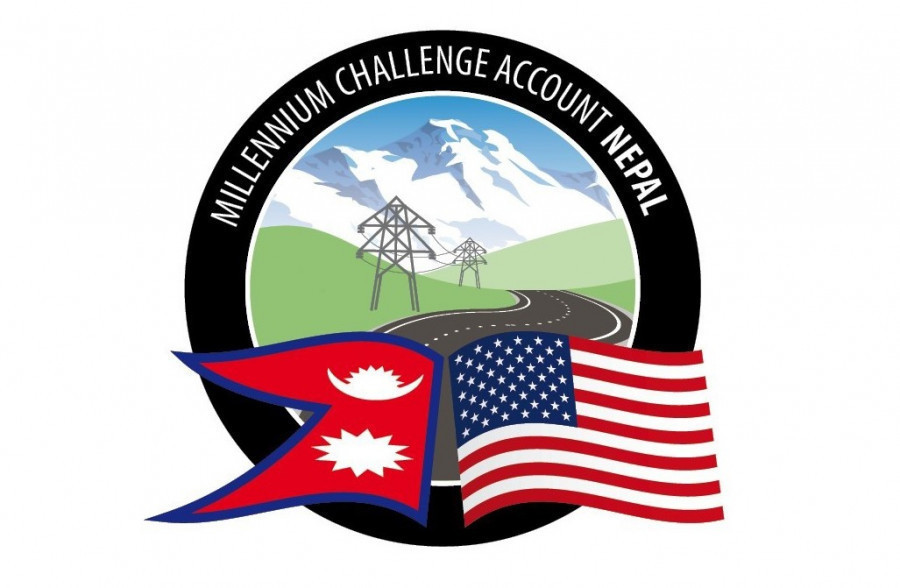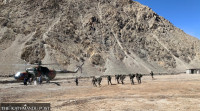National
US pulls MCC Nepal Compact back from the brink
American embassy confirms continuation of $697 million aid package for road and transmission line projects.
Anil Giri
Ending months of speculation, the Donald Trump administration has decided to give continuity to the Millennium Challenge Nepal Compact, a package of development projects that has been in the spotlight in Nepal for over a half decade.
In late April, the US Department of Government Efficiency (DOGE), a cost-cutting initiative of the Donald Trump administration and then led by billionaire Elon Musk, had decided to shut down the MCC, followed by the shuttering of USAID, another powerful US external aid agency working across the globe.
After two major US aid agencies were told to pack up, the State Department started reviewing foreign assistance projects and programmes undertaken by various aid agencies, including the MCC and USAID.
In an email response to the Post, a US embassy representative said, the US government review of foreign assistance has recommended continuity of the Millennium Challenge Corporation Nepal Compact, adding, “And we have notified the government of Nepal of this decision.”
This means the projects undertaken by the MCA Nepal, a special vehicle to implement two projects—related to highway upgrade and electricity transmission line construction—in Nepal under the purview of the government of Nepal and MCC, will move on unhindered.
Since January, the government was in a fix over how to manage funds if the Trump administration fully withdrew from the MCC.
“With this new US decision, there is a sense of relief,” a senior finance ministry official said. “Although we were assured by the US side that the projects would not be affected, we were also looking for alternative resources to fund the projects under the MCC.”
Nepal and the MCC signed an agreement in September 2017 to execute energy and road upgrade projects, whereby the US would pump in $500 million in aid. Nepal, from its side, would inject $150 million, an amount which was later jacked up to $197 million.
The total investment in road upgrade and transmission line projects under the MCC has reached $697 million. The total could have gone up to $749 million as the MCC board had decided to pour another $50 million into the project to fill the funding gap.
The US Embassy in Kathmandu sent an email to the Ministry of Finance on Friday and verbally communicated to the Ministry of Foreign Affairs about the continuation of the MCC projects in Nepal following the State Department’s review.
“I have information about an email sent by the US Embassy in Kathmandu regarding the continuation of MCC projects, but I am not aware of its content,” said Shyam Prasad Bhandari, finance ministry spokesperson. “The way we were getting a positive response from the US side, we were hopeful that the MCC projects would be fully resumed.”
The MCC has a chequered history both in Kathmandu and Washington.
The MCA Compact was dragged into political controversy by leftist parties and nationalist elements, particularly after 2020, which added to the difficulty of its parliamentary endorsement. Despite several months of uproar in parliament and on the streets, the House of Representatives in February 2022 endorsed the compact by adding a 12-point interpretive declaration.
In order to execute the two projects in Nepal, the MCA-Nepal was created, but it landed in controversy due to opposition from various sections who labeled the MCC Compact as part of the US Indo-Pacific Strategy (IPS).
In August, 2023, it entered into force and set a deadline of five years for the completion of the twin projects—cross-border transmission line projects, expansion of domestic energy transmission line, and upgrade of a section of the East West Highway. A multi-million-dollar tender was called to execute these projects.
As soon as the major tender process for transmission lines started, the new US administration paused the MCC projects, but did not fully halt them in Nepal.
On February 18, the MCC notified the Nepal government that payments related to activities funded under the Nepal Compact had been halted, in compliance with a 90-day freeze imposed by an executive order of US President Donald Trump on January 20.
And in March, DOGE decided to shut down US aid programmes that span over 40 different countries.
Geopolitically, the MCC is also seen as a rival of China’s Belt and Road Initiative, of which Nepal is a member. In June, the MCC headquarters not only proposed significantly cutting the MCC’s budget, but also stated that it was effectively countering the BRI.
“For more than two decades, MCC has invested in partner countries to create new opportunities for US investment, trade, and jobs, opening valuable opportunities for American businesses while effectively countering the growing influence of China’s Belt and Road Initiative (BRI)”, the MCC said in a proposal tabled in the US Congress.




 21.45°C Kathmandu
21.45°C Kathmandu















